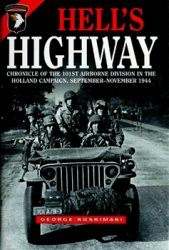If it is true that the boundaries of the subject have indeed expanded, we should be able to identify some of the key pioneers of the twentieth century who pushed the boundaries outwards. Four men, none of them still living today, had an unquestionably profound influence on the debates of their successors and will clearly continue to do so in the future. They are also remarkable in that their work has been extensively read and used outside the circle of those who take a professional interest in the history of the ancient world as such. The four would be M. I. Rostovtzeff, A. D. Momigliano, M. I. Finley and J.-P. Vernant. Rostovtzeff, born in Tsarist Russia in 1870, and living in exile from the Revolution onwards, wrote ambitious social and economic histories of the Hellenistic world and of the Roman empire, proving by his example that these were possible enterprises and that such histories could be based on many different types of evidence, including the evidence of archaeology. Momigliano, born in Piedmont in 1908, and also exiled from his homeland - but in his case as a result of the Second World War - showed, again by example, that it was possible to combine the study of the ancient sources with the successive understandings of those sources by generations of scholars from antiquity until the twentieth century; each of these forerunners of the discipline had to be placed in his context just as much as the historians of antiquity. Finley, born in the USA, but living in Europe as a result of the anti-communist persecutions of the 1950s, revived and redirected fundamental debates about the nature of the ancient economy, and so placed a whole swath of issues in front of a new generation of economic historians. Vernant, a French resistance leader in the Second World War, transformed established ideas just as profoundly by showing how Greek myth, religion, and rationality could all be understood in relation to the social and political evolution of the early Greek city.
The lives of all four, as of so many others, were deeply marked by the conflicts of the twentieth century, and their thought informed by the battle of ideologies through which all their contemporaries lived. Two of the four (Finley and Vernant) were at least in the early part of their careers committed Marxists; it could be said of all four of them that they engaged with the issues raised by the application of Marx’s ideas to the ancient world. Rostovtzeff, in particular, while being in principle hostile to Marxism and all that it had brought about, produced theories of the overall direction of ancient society that bear a remarkably Marxist stamp. Momigliano was far from being a Marxist at any stage of his life, but he did have a very clear understanding of how important the dialogue with Marxist ideas continued to be. What all four of these men shared was an extraordinary capacity to build on predecessors’ work - whether it was Marx, Weber, Mommsen or Meyer - while seeing how to extend the scope of ancient history irrespective of old boundaries, whether chronological, disciplinary, or conceptual.




 World History
World History









